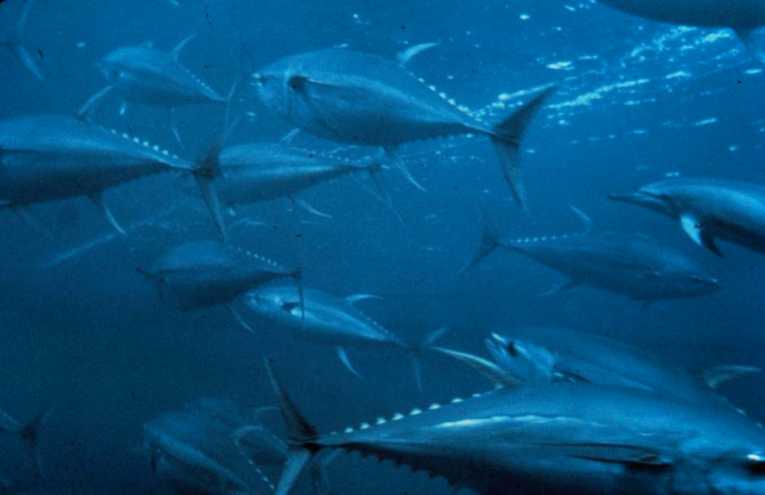The US National Oceanic and Atmospheric Administration (NOAA) has decided that the Atlantic bluefin tuna does not currently require government species protection under the Endangered Species Act but has promised to monitor how the effects of the Deepwater Horizon oil spill affect the species.
NOAA will review the current status of the species by early 2013, but currently the western Atlantic, eastern Atlantic and Mediterranean populations of blufins are to be designated as 'species of concern' but are not endangered. The International Commission for the Conservation of Atlantic Tunas (ICCAT) will help with the review by taking a population census.
''NOAA is concerned about the status of bluefin tuna, including the potential effects of the Deepwater Horizon BP oil spill on the western stock of Atlantic bluefin, which spawns in the Gulf of Mexico,'' said Jane Lubchenco, Ph.D., under secretary of commerce for oceans and atmosphere and NOAA administrator. ''We will revisit the status of the species in early 2013 when we will have a new stock assessment and information from the Natural Resource Damage Assessment of the oil spill. We will also take action in the interim if new information indicates the need for greater protection.''
Tuna - one of the most popular culinary fish in the world - are under threat around the world from overfishing, either 'legally' or illegally. While NOAA has decided that the Atlantic species are unlikely to become extinct for the time being, they also recognise that there is severe pressure on numbers.
The Deepwater Horizon spill in the Gulf of Mexico in 2010 was the largest in US history and scientists are yet to discover how serious the effects of the massive leak from the BP platform on marine life is.
Image Credit: (Credit: NOAA Fisheries Service)










